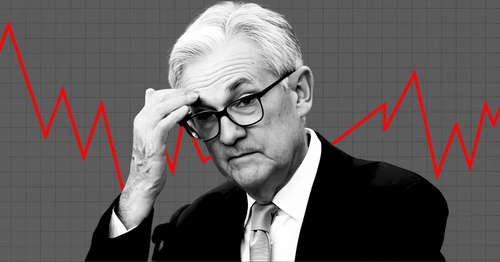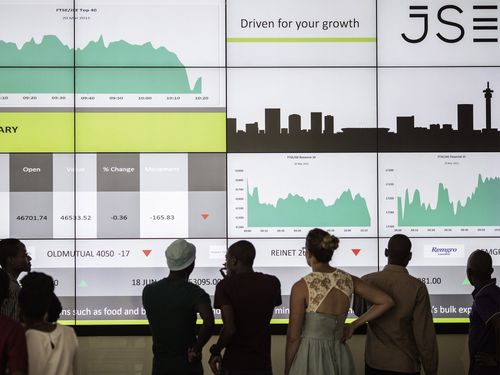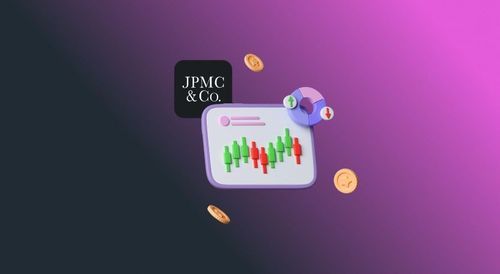The Rise of DeFi: A Decentralised Financial Revolution

The traditional financial system relies on intermediaries like banks and legal institutions to facilitate transactions and resolve disputes. This framework demands trust, not just between transacting parties but also in the intermediaries themselves, whether private corporations or state entities.
Yet, trust in institutions, or even among citizens, is fragile in many parts of the world. This gap has spurred the creation of a system where transactions can occur without intermediaries or blind trust in counterparties. Enter decentralised finance (DeFi), powered by blockchain technology.
What Is DeFi?
DeFi refers to applications and protocols built on blockchain networks that enable users to manage assets without traditional financial intermediaries. At its core, it promises an open, permissionless, and transparent financial ecosystem, free from centralised control. Users retain full custody of their assets, interacting with the system via decentralised applications (dApps).
In DeFi, disputes are rare. Code dictates outcomes, eliminating the need for courts. Users maintain complete control over their funds, and transactions execute automatically when predefined conditions are met.
The Promise of DeFi
One of DeFi’s most compelling advantages is financial inclusion. For those marginalised by sanctions, geographic isolation, or poverty, DeFi offers a lifeline. Traditional finance often neglects underserved regions due to low profitability, but DeFi’s low operational costs make it accessible to anyone with an internet connection.
The Engine Behind DeFi: Smart Contracts
DeFi applications are powered by smart contracts. Self-executing algorithms embedded in blockchain code. These contracts automate transactions, ensuring terms are immutable and enforceable without third-party intervention.
Though still in its infancy, smart contract technology holds vast potential. Beyond finance, prototypes are emerging in logistics, legal processes, voting systems, identity verification, and property rights management.
However, smart contracts require external data to interact with the real world. This is where oracles come in. Specialised programmes that fetch and format off-chain data for blockchain use.
Key DeFi Tokens on BROKSTOCK
The BROKSTOCK trading platform offers access to several pivotal DeFi tokens, each playing a unique role in the ecosystem:
- LINK (Chainlink): The backbone of decentralised oracles, LINK, connects smart contracts with real-world data critical for DeFi applications like price feeds, insurance, and more. Without reliable oracles, DeFi cannot function at scale.
- AAVE: A leader in decentralised lending, AAVE allows users to earn interest on deposits and borrow assets without intermediaries. Its innovative "flash loans" enable uncollateralised borrowing if repaid within a single transaction block.
- ONDO: Bridging traditional finance (TradFi) with DeFi, ONDO focuses on infrastructure to bring institutional-grade financial products on-chain. Its solutions aim to make DeFi more accessible to legacy systems.
- UNI (Uniswap): The largest decentralised exchange (DEX) on Ethereum, UNI powers permissionless token swaps via automated liquidity pools. Its governance token, UNI, lets holders vote on protocol upgrades.
- RUNE (THORChain): A cross-chain liquidity protocol, RUNE enables native asset swaps between blockchains (e.g., Bitcoin to Ethereum) without wrapped tokens — a breakthrough for interoperability.
Current Use Cases
Today, DeFi is most prominent in:
- Lending and borrowing: Protocols like AAVE enable instant loans, often collateralised by crypto assets, without credit checks.
- Stablecoins: Pegged to fiat currencies like the US dollar, these tokens (e.g., Tether’s USDT) facilitate stable transactions on the blockchain.
- Decentralised exchanges (DEXs): Platforms like Uniswap allow peer-to-peer token swaps without intermediaries.
- Yield farming: Users earn fees by providing liquidity to DeFi protocols.
Challenges Ahead
Despite its promise, DeFi faces hurdles:
- Regulatory uncertainty: Smart contracts lack legal recognition in most jurisdictions, complicating disputes.
- Scalability: Blockchains lag behind traditional systems in speed and efficiency.
- Security risks: Code vulnerabilities and user errors can lead to irreversible losses, unlike traditional finance, where intermediaries often bear liability.
- Adoption barriers: Limited internet access and blockchain integration in developing regions slow progress.
The Road Ahead
DeFi is still developing, but its growth is undeniable. Tokens like LINK, AAVE, and UNI exemplify its innovation, while projects like ONDO and RUNE push boundaries in TradFi integration and cross-chain functionality. Developers are tackling its flaws, and if successful, DeFi could shift power from centralised institutions to open-source communities and their users.
For now, the revolution is underway — one smart contract at a time.
Read also
BROKSTOCK SA (PTY) LTD is an authorised Financial Service Provider and is regulated by the South African Financial Sector Conduct Authority (FSP No.51404). BROKSTOCK SA (PTY) LTD Proprietary Limited trading as BROKSTOCK. BROKSTOCK SA (PTY) LTD t/a BROKSTOCK acts solely as an intermediary in terms of the FAIS Act, rendering only an intermediary service (i.e., no market making is conducted by BROKSTOCK SA (PTY) LTD t/a BROKSTOCK) in relation to derivative products (CFDs) offered by the liquidity providers. Therefore, BROKSTOCK SA (PTY) LTD t/a BROKSTOCK does not act as the principal or the counterparty to any of its transactions.
The materials on this website (the “Site”) are intended for informational purposes only. Use of and access to the Site and the information, materials, services, and other content available on or through the Site (“Content”) are subject to the laws of South Africa.
Risk notice Margin trading in financial instruments carries a high level of risk, and may not be suitable for all users. It is essential to understand that investing in financial instruments requires extensive knowledge and significant experience in the investment field, as well as an understanding of the nature and complexity of financial instruments, and the ability to determine the volume of investment and assess the associated risks. BROKSTOCK SA (PTY) LTD pays attention to the fact that quotes, charts and conversion rates, prices, analytic indicators and other data presented on this website may not correspond to quotes on trading platforms and are not necessarily real-time nor accurate. The delay of the data in relation to real-time is equal to 15 minutes but is not limited. This indicates that prices may differ from actual prices in the relevant market, and are not suitable for trading purposes. Before deciding to trade the products offered by BROKSTOCK SA (PTY) LTD, a user should carefully consider his objectives, financial position, needs and level of experience. The Content is for informational purposes only and it should not construe any such information or other material as legal, tax, investment, financial, or other advice. BROKSTOCK SA (PTY) LTD will not accept any liability for loss or damage as a result of reliance on the information contained within this Site including data, quotes, conversion rates, etc.
Third party content BROKSTOCK SA (PTY) LTD may provide materials produced by third parties or links to other websites. Such materials and websites are provided by third parties and are not under BROKSTOCK SA (PTY) LTD's direct control. In exchange for using the Site, the user agrees not to hold BROKSTOCK SA (PTY) LTD, its affiliates or any third party service provider liable for any possible claim for damages arising from any decision user makes based on information or other Content made available to the user through the Site.
Limitation of liability The user’s exclusive remedy for dissatisfaction with the Site and Content is to discontinue using the Site and Content. BROKSTOCK SA (PTY) LTD is not liable for any direct, indirect, incidental, consequential, special or punitive damages. Working with BROKSTOCK SA (PTY) LTD you are trading share CFDs. When trading CFDs on shares you do not own the underlying asset. Share CFDs are complex instruments and come with a high risk of losing money rapidly due to leverage. A high percentage of retail traders accounts lose money when trading CFDs with their provider. All rights reserved. Any use of Site materials without permission is prohibited.





